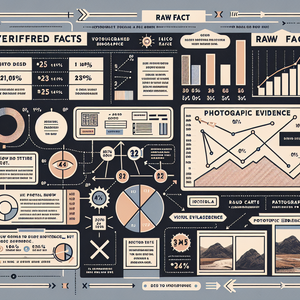Women in Supply Chain Management: Bridging the Gender Pay Gap

The gender pay gap reflects the average difference in earnings between men and women in the workforce. In the realm of supply chain management, studies reveal that female professionals earn approximately 20% less than their male counterparts, despite having similar qualifications and experience. According to a report from the World Economic Forum, this disparity persists even as women comprise a significant portion of the SCM workforce. The implications of this gap extend beyond individual women; they can stifle innovation and hinder growth within the industry. When diverse voices are excluded from decision-making processes, organizations may miss out on creative solutions and competitive advantages.
Challenges Faced by Women in SCM
The gender pay gap in supply chain management is exacerbated by several challenges that women frequently encounter: 1. **Underrepresentation in Leadership Roles**: Despite making significant contributions to the SCM workforce, women often occupy lower-level positions, leading to a lack of representation in leadership roles. This underrepresentation can perpetuate biases in salary negotiations and limit women’s opportunities for advancement. 2. **Stereotypes and Biases**: Women in SCM frequently face stereotypes that undermine their competence and assertiveness. These biases can negatively impact their chances of promotion or receiving raises, as decision-makers may unconsciously favor male colleagues. 3. **Work-Life Balance Challenges**: The demands of balancing work and family responsibilities disproportionately affect women. Many women experience interruptions in their careers due to childcare needs or other family obligations, which can hinder their professional progress and earning potential.
Successful Initiatives Promoting Equity
Despite the challenges, various organizations and initiatives are making meaningful strides toward bridging the gender pay gap in supply chain management: 1. **Women in Supply Chain Initiative**: This initiative aims to empower female professionals through mentorship, networking opportunities, and leadership training. By offering resources and support, it helps women navigate their careers and assert their value in the workplace. 2. **Diversity and Inclusion Programs**: Major companies such as Unilever and Procter & Gamble have recognized the importance of diversity in their workforce. They have implemented programs that promote gender equality, including flexible work arrangements, sponsorship opportunities, and targeted recruitment efforts to attract female talent. 3. **Educational Partnerships**: Some organizations have partnered with educational institutions to develop programs specifically designed to encourage young women to pursue careers in supply chain management. By fostering interest from an early age, these initiatives help build a pipeline of female talent for the future.
Insights from Female Leaders in SCM
To gain deeper insights into the landscape of women in supply chain management, we consulted several female leaders who shared their experiences and advice: - **Mentorship is Key**: One leader emphasized the importance of finding a mentor, stating, “Having someone who believes in you can make all the difference in navigating your career.” Mentorship can provide invaluable guidance and support, helping women to overcome obstacles. - **Value of Diverse Perspectives**: Another leader highlighted the need for organizations to create a culture that values diversity, saying, “When women are included in decision-making processes, we see better outcomes for businesses and employees alike.” Diverse teams are often more innovative and effective.
Actionable Steps for Organizations
To foster a more equitable environment for women in supply chain management, organizations can take several proactive steps: 1. **Implement Transparent Pay Structures**: Establish clear pay scales to ensure compensation decisions are based on objective criteria rather than subjective biases. 2. **Promote Leadership Development Programs**: Offer targeted training and mentorship opportunities for women to prepare them for leadership roles within the organization. 3. **Encourage Work-Life Balance**: Provide flexible work arrangements that enable women to balance their professional and personal responsibilities without sacrificing career growth. 4. **Foster an Inclusive Company Culture**: Create a workplace environment that promotes diversity and encourages open dialogue about gender equity. 5. **Set Diversity Goals**: Establish measurable diversity and inclusion goals and hold leadership accountable for achieving them.
Bridging the gender pay gap in supply chain management is not merely a matter of fairness; it is essential for the industry's growth and sustainability. By addressing the challenges women face and implementing initiatives that promote equity, organizations can unlock the full potential of their workforce. As more women ascend to leadership roles, the supply chain sector will benefit from diverse perspectives, fostering innovation and resilience in an ever-evolving global market. The time for change is now, and it begins with a commitment to creating an inclusive environment that values and empowers all professionals, regardless of gender.
Supply Chain Analyst
Amazon, Walmart, Procter & Gamble
Core Responsibilities
Analyze supply chain data to identify inefficiencies and propose improvements.
Collaborate with cross-functional teams to optimize inventory levels and reduce costs.
Prepare reports and presentations for management on supply chain performance metrics.
Required Skills
Strong analytical skills with proficiency in data analysis tools like Excel, SQL, or R.
Knowledge of supply chain management principles and logistics software (e.g., SAP, Oracle).
Excellent communication skills to convey complex data insights to non-technical stakeholders.
Procurement Specialist
Unilever, Nestlé, Johnson & Johnson
Core Responsibilities
Source and negotiate contracts with suppliers to obtain goods and services at the best prices.
Monitor supplier performance and ensure compliance with contractual obligations.
Conduct market research to identify potential suppliers and assess market trends.
Required Skills
Strong negotiation skills with a solid understanding of procurement best practices.
Experience with procurement software (e.g., Ariba, Coupa) and contract management tools.
Ability to analyze financial data and supplier performance metrics.
Logistics Coordinator
FedEx, DHL, UPS
Core Responsibilities
Coordinate and oversee the transportation and distribution of goods to ensure timely delivery.
Manage relationships with freight carriers and third-party logistics providers.
Monitor shipment tracking and resolve any issues that arise during transit.
Required Skills
Strong organizational skills and attention to detail to manage complex logistics operations.
Proficiency in logistics management software (e.g., TMS systems) and Excel.
Ability to work under pressure and adapt to changing priorities in a fast-paced environment.
Supply Chain Manager
Coca-Cola, General Motors, Boeing
Core Responsibilities
Develop and implement supply chain strategies to improve efficiency and reduce costs.
Lead a team of supply chain professionals and oversee daily operations.
Collaborate with internal stakeholders to forecast demand and align supply chain activities.
Required Skills
Leadership experience with a proven track record of managing teams in a supply chain environment.
Strong understanding of supply chain methodologies (e.g., Lean, Six Sigma).
Excellent project management skills and the ability to drive process improvements.
Demand Planner
Target, Home Depot, Procter & Gamble
Core Responsibilities
Analyze sales forecasts and historical data to develop accurate demand predictions.
Collaborate with marketing and sales teams to align demand planning with promotional activities.
Monitor inventory levels and adjust plans based on changing market conditions.
Required Skills
Proficiency in demand planning software (e.g., SAP IBP, Kinaxis) and advanced Excel skills.
Strong analytical and problem-solving abilities to interpret data and make informed decisions.
Excellent communication skills to present demand insights to stakeholders.


